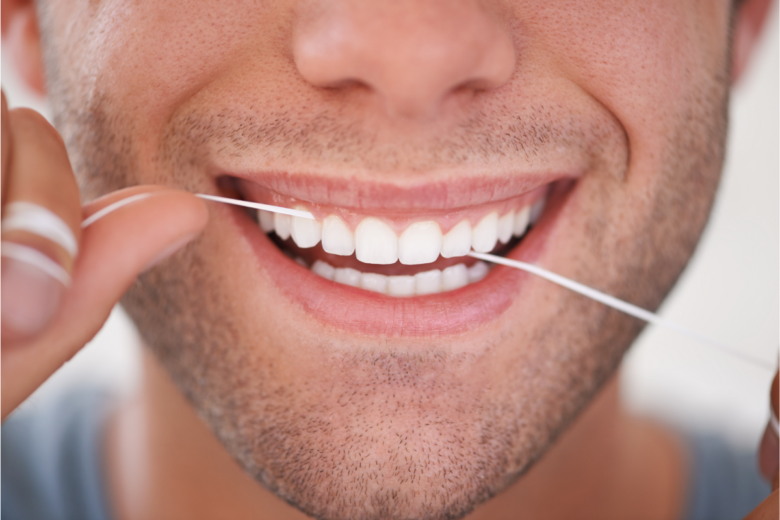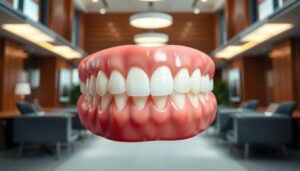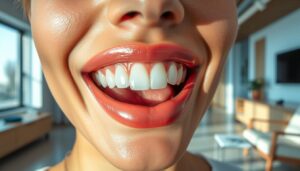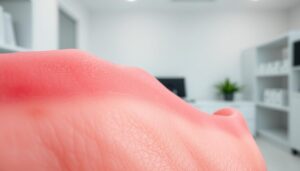Good oral hygiene is more than just a cosmetic concern—it’s an essential part of your overall health. Taking care of your teeth and gums helps prevent cavities, gum disease, and other serious oral issues. Not only does maintaining a clean mouth enhance your smile, but it also reduces your risk of developing conditions like heart disease and diabetes. In this article, we’ll explore 10 techniques you can implement to significantly improve your oral hygiene routine.
Brush Your Teeth the Right Way
How to Choose the Right Toothbrush
When it comes to brushing your teeth, choosing the right toothbrush is the first step. Opt for a toothbrush with soft bristles to avoid damaging your gums and enamel. Electric toothbrushes are a great choice because they provide consistent brushing motions, ensuring thorough cleaning. Look for one with a small head, which can reach the back of your mouth more easily.
The Proper Brushing Technique
Brushing your teeth may seem straightforward, but there’s more to it than just scrubbing back and forth. Place your toothbrush at a 45-degree angle to your gums and gently move it in circular motions. Brush for at least two minutes, ensuring you cover all surfaces of your teeth: outer, inner, and chewing surfaces. Don’t forget to brush your tongue, too—it harbors bacteria that can cause bad breath.
Use the Right Toothpaste
Types of Toothpaste: What Works for You?
Choosing the right toothpaste can make a big difference in your oral hygiene. Look for a toothpaste with fluoride—it strengthens your enamel and helps prevent cavities. If you have sensitive teeth, you may want to choose a toothpaste specifically formulated for sensitivity. There are also toothpastes that target tartar control, whitening, or gum health, so select the one that aligns with your needs.
Fluoride: The Key Ingredient for Healthy Teeth
Fluoride is a mineral that has been proven to remineralize tooth enamel, making it more resistant to decay. It helps prevent cavities by fighting off the acids produced by bacteria in your mouth. Be sure to use fluoride toothpaste for the best protection, and remember that brushing your teeth twice a day with fluoride toothpaste is one of the most effective ways to maintain a healthy smile.
Don’t Forget to Floss
Why Flossing is Crucial for Your Oral Health
Flossing is just as important as brushing, yet many people skip it. Flossing helps remove food particles and plaque that get stuck between your teeth, where your toothbrush can’t reach. By flossing daily, you can prevent gum disease and cavities from forming in those hard-to-reach areas.
Step-by-Step Guide to Effective Flossing
To floss properly, take about 18 inches of dental floss, wrap the ends around your fingers, and gently slide it between your teeth. Curve the floss into a C-shape around each tooth and move it up and down to remove plaque. Be careful not to snap the floss into your gums, as this can cause irritation. Aim to floss once a day for the best results.
Rinse with Mouthwash
The Benefits of Using Mouthwash
Mouthwash is a great addition to your oral hygiene routine because it helps kill bacteria, freshen your breath, and reduce plaque buildup. Some mouthwashes also contain fluoride, providing extra protection against cavities. It’s a quick and easy way to boost your oral hygiene efforts.
How to Choose the Best Mouthwash for Your Needs
When choosing a mouthwash, look for one that targets your specific concerns. If you’re prone to cavities, go for a fluoride mouthwash. For gum health, choose one with antiseptic properties that kill bacteria. Make sure to follow the directions carefully, as overuse of certain mouthwashes can lead to a dry mouth or other issues.
Drink Plenty of Water
The Role of Water in Oral Health
Water is essential for your body’s overall health, and it plays a significant role in maintaining oral hygiene. Drinking water helps wash away food particles and bacteria from your mouth. It also encourages the production of saliva, which is the mouth’s natural defense against cavities and gum disease.
Hydration and Its Effect on Saliva Production
Saliva is your mouth’s natural cleanser, and it helps neutralize the acids produced by bacteria. Drinking plenty of water helps ensure your mouth stays moist and can fight off harmful bacteria. Aim to drink water throughout the day, especially after meals, to help keep your mouth clean and hydrated.
Avoid Sugary and Acidic Foods
How Sugar Affects Your Teeth
Sugary foods and drinks are a major cause of cavities. When sugar interacts with bacteria in your mouth, it creates acid that erodes your enamel. Over time, this can lead to tooth decay. Limit sugary snacks and beverages to protect your teeth from damage.
Foods That Help Strengthen Your Enamel
On the other hand, some foods are beneficial for your teeth. Crunchy vegetables like carrots and celery can help remove plaque and stimulate saliva production. Dairy products like cheese are rich in calcium and phosphate, which help strengthen your enamel.
Chew Sugar-Free Gum
The Benefits of Chewing Gum for Oral Hygiene
Chewing sugar-free gum is an easy way to boost your oral hygiene. It increases saliva flow, which helps neutralize acids and wash away food particles. Plus, the act of chewing gum can help keep your mouth feeling fresh.
How Gum Helps Fight Cavities and Plaque
Sugar-free gum containing xylitol is particularly beneficial. Xylitol is a natural sugar substitute that prevents the growth of bacteria in your mouth, helping to reduce plaque and cavities. Just be sure to chew gum in moderation.
Visit Your Dentist Regularly
Why Regular Checkups Matter
Regular dental visits are crucial to maintaining your oral health. Your dentist can spot potential issues such as cavities, gum disease, or oral cancer early on, making treatment more effective. Professional cleanings remove plaque and tartar that build up over time.
What to Expect During a Dental Exam
During a routine dental exam, your dentist will check for signs of decay or disease and clean your teeth. They may also take X-rays to look for problems beneath the surface. Regular checkups help ensure your mouth stays healthy for years to come.
Take Care of Your Tongue
The Importance of Tongue Cleaning
Your tongue is home to bacteria that contribute to bad breath and plaque buildup. Cleaning your tongue should be an essential part of your oral hygiene routine. It helps remove bacteria and freshens your breath.
How to Clean Your Tongue Properly
You can clean your tongue using a toothbrush or a tongue scraper. Gently scrape or brush your tongue from back to front, being careful not to trigger your gag reflex. Doing this daily can help keep your mouth cleaner and your breath fresher.
Quit Smoking and Limit Alcohol
The Effects of Smoking on Oral Health
Smoking is one of the most damaging habits for your teeth and gums. It leads to bad breath, stained teeth, and an increased risk of gum disease. Quitting smoking is one of the best things you can do for your oral hygiene.
How Alcohol Can Impact Your Teeth and Gums
Excessive alcohol consumption can also harm your oral health. It dries out your mouth, reducing saliva production and making you more susceptible to cavities and gum disease. Limiting alcohol intake can help protect your smile.
Use a Water Flosser
What is a Water Flosser and How Does it Work?
A water flosser uses a stream of pulsating water to remove plaque and food particles from between your teeth. It’s a great alternative to traditional flossing for those with braces, sensitive gums, or limited dexterity.
The Advantages of Water Flossing Over Traditional Methods
Water flossing is gentle yet effective. It’s often easier to use and can reach areas traditional floss may miss, making it a great addition to your oral hygiene routine.
Opt for Natural Oral Care Products
The Rise of Natural Toothpastes and Mouthwashes
Natural oral care products have become more popular as people seek chemical-free alternatives for their hygiene routines. Many natural toothpastes and mouthwashes are made with essential oils, aloe vera, or herbal extracts.
Do Natural Products Really Work?
While natural products can be effective, they may not always provide the same level of protection as conventional products containing fluoride or antiseptics. Be sure to choose products backed by scientific research to ensure your oral health remains at its best.
Maintain a Healthy Diet for Better Oral Health
The Best Foods for Strong Teeth and Gums
A well-balanced diet is essential for strong teeth and gums. Foods rich in calcium, like leafy greens, cheese, and almonds, help maintain enamel strength. Vitamin C-rich fruits and vegetables, such as oranges and bell peppers, support gum health.
Nutrients That Support Oral Health
In addition to calcium and vitamin C, vitamin D helps your body absorb calcium, and phosphorus supports enamel repair. Make sure your diet includes these nutrients for optimal oral health.
By implementing these 10 techniques into your daily oral hygiene routine, you’ll be well on your way to maintaining a healthier mouth and a brighter smile. Remember that consistency is key—brushing, flossing, and visiting your dentist regularly are all important habits that contribute to long-term oral health. Keep these tips in mind, and don’t forget to take care of your mouth just as much as the rest of your body.




